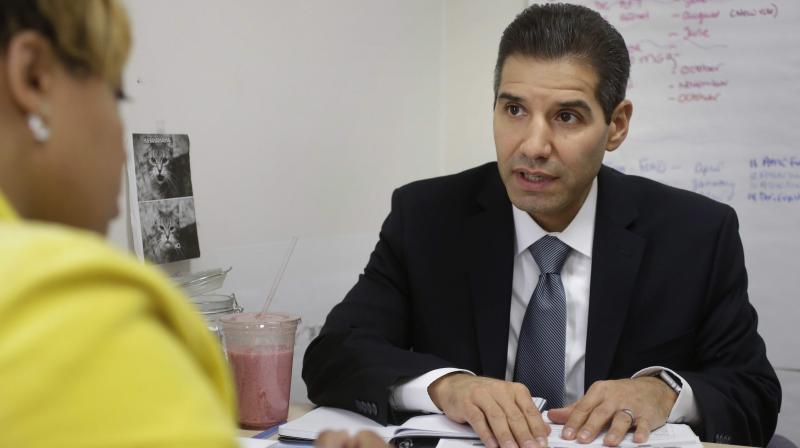Once a killer, now a CEO: This US man works to turn young minds around

Somerville: John Valverde isn't your typical CEO. He spent 16 years in prison for killing a man accused of raping his girlfriend.
While in prison, Valverde did his best to redeem himself, earning two college degrees, teaching fellow inmates how to read and write, and working as an HIV/AIDS counselor.
Next week, he'll take over as chief executive officer of YouthBuild USA Inc., an organisation with a global network of programs aimed at helping young, low-income dropouts reclaim their lives and get skills to land jobs and become community leaders.
Valverde said he thinks it is important for him to be honest about his past with the young people he's trying to help. One in three has a criminal record.
"They are just like me, and therefore their path could be like mine, and therefore they could achieve things that they never imagined," Valverde said in a recent interview at YouthBuild's Somerville, headquarters.
Valverde went from being a promising young college student to a convicted killer.
In 1991, at age 20, Valverde decided to confront a photographer his girlfriend said had raped her. He shot the man once in the head, at point-blank range, killing him. The photographer, Joel Schoenfeld, was on probation for two other sex offenses at the time.
Valverde was convicted of manslaughter and spent 16 years in prison before being released on parole.
"From the first moment, I knew that what I did was wrong, but it was a long journey for me to accept full responsibility without rationalisation, justification or excuse or blame," he said.
Valverde said that although he believes "it's never possible to make amends for taking a life," he decided to try to transform his own life.
Valverde earned a bachelor's degree in behavioral science from Mercy College and a master's degree in Urban Ministry from the New York Theological Seminary while he was in prison. After his release in 2008, he worked as a paralegal, and then decided to work for nonprofit organizations. For the past seven years, he has worked for The Osborne Association, a New York organization that provides treatment, education and vocational services programs to current and former inmates.
"I felt called to perhaps be a face for second chances and a voice for second chances," Valverde said.
It wasn't too much of a leap for Valverde to make the move to YouthBuild, an organization devoted to helping people pull themselves out of poverty. Valverde beat out 124 other candidates for the job.
The first YouthBuild program was started in 1978 in the New York City neighborhood of East Harlem, where a group of teens helped rebuild an abandoned 10-unit tenement. Since then, it has grown to 250 community-controlled programs around the U.S. and more than 80 programs in 21 other countries.
Program participants work toward their high school diplomas or equivalency while learning job skills by building affordable housing in their neighborhoods, performing community service and participating in leadership training. YouthBuild serves mostly people between ages 16 and 24 who are out of work, out of school and live in low-income neighborhoods, a population estimated at about 3 million in the U.S.
Brianna Bell, 18, currently enrolled in the Youth Action YouthBuild program in East Harlem, said she was initially shocked when she first heard Valverde's story during his recent visit there.
"But when I met him and got to know him, then I thought, if he can turn his whole life around, why can't I? Why can't I do something with my life?" said Bell, who dropped out of high school after moving from Georgia to New York in 2015.
Karim Couser, 19, also enrolled in the program, said he was struck by Valverde's candor about his past.
"He didn't try to come here with a sales pitch or anything," Couser said. "He showed that no matter what you did before, you could always make a future."
Valverde, now 47, has a special fondness for the young people served by YouthBuild. But don't call them "at-risk youth," a description Valverde sees as a negative stereotype. "Opportunity youth" is the more accurate term, Valverde said.
"'Opportunity youth' is really flipping that to say, 'I am a person that's full of potential,'" he said. "'I can do anything in the world.'"

